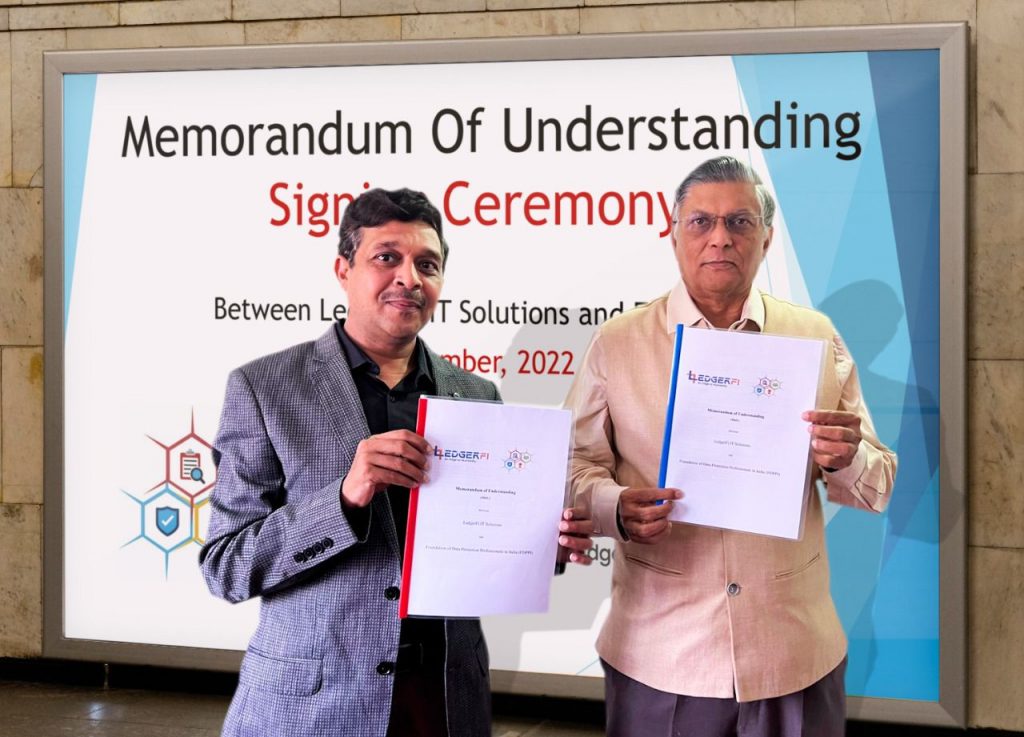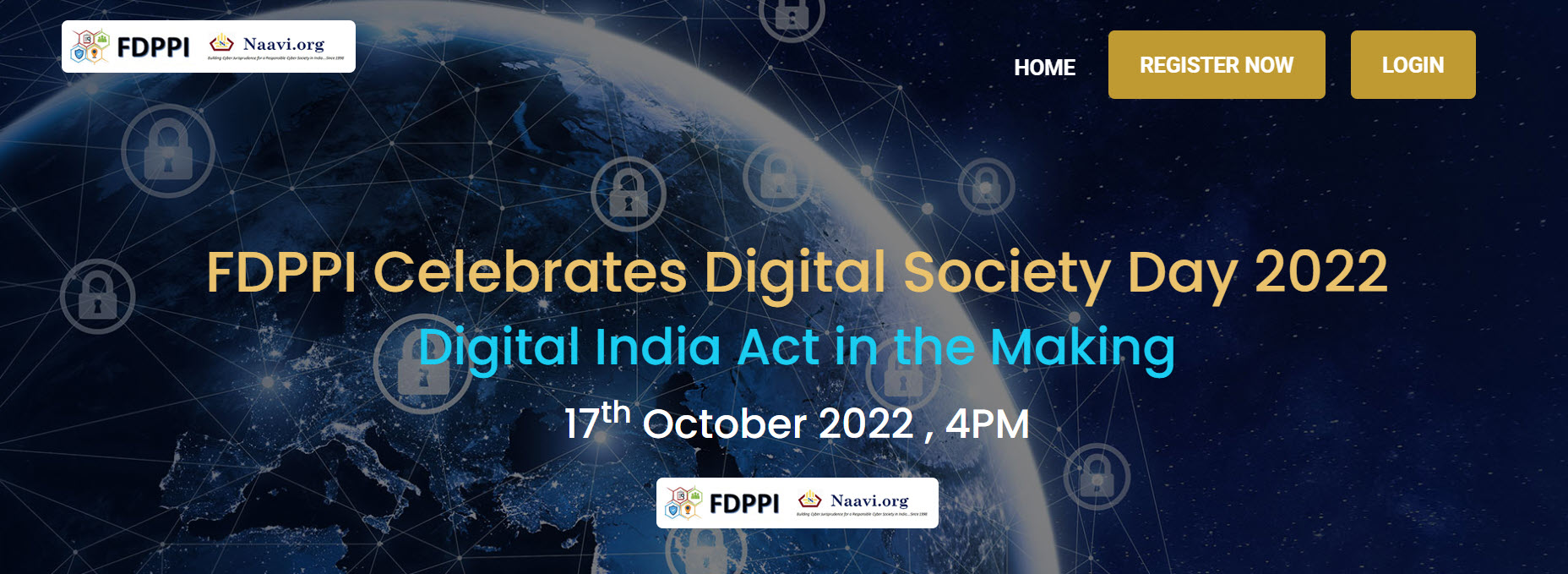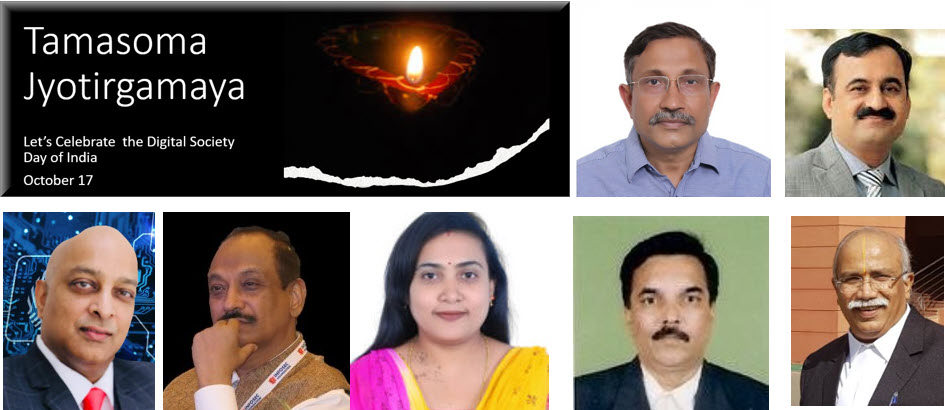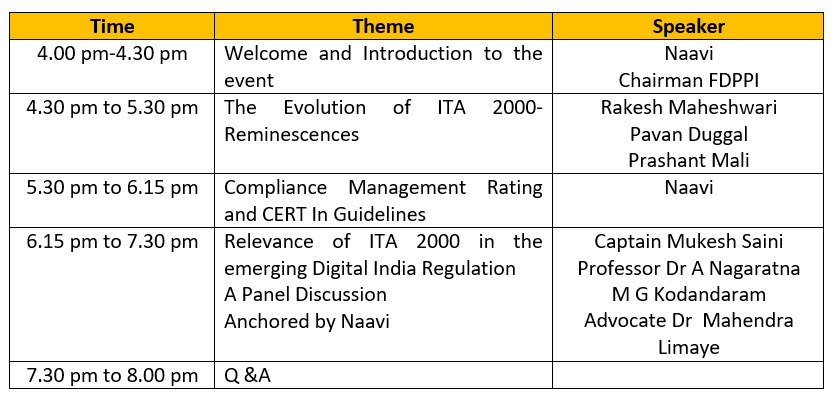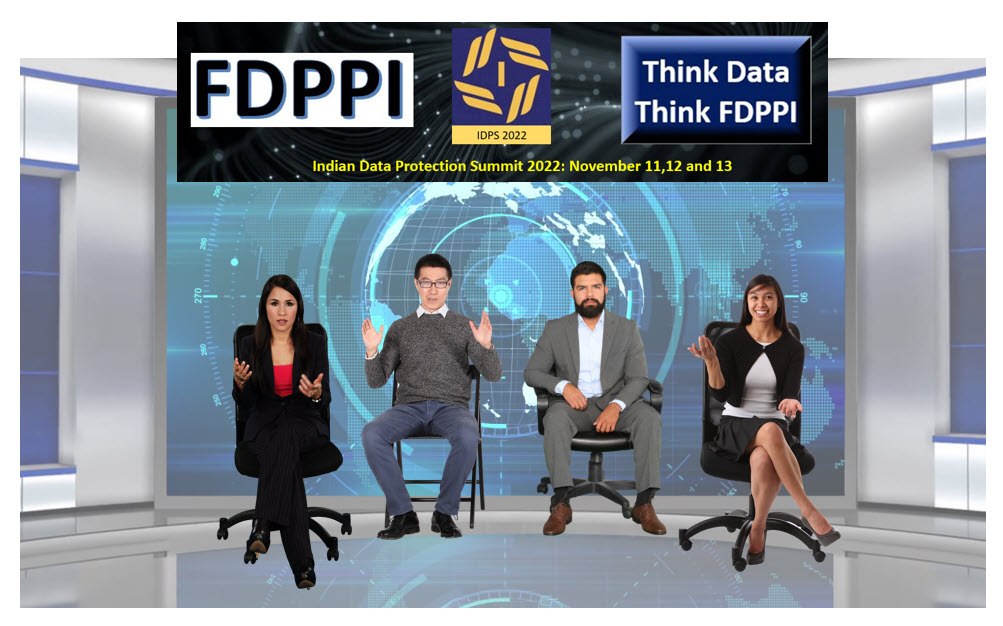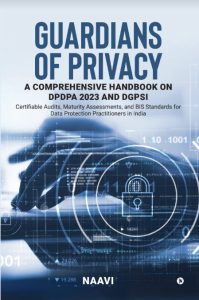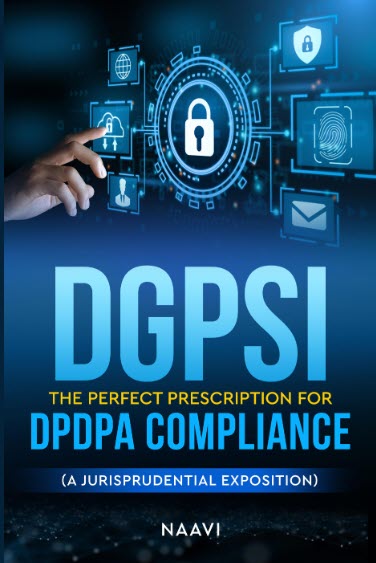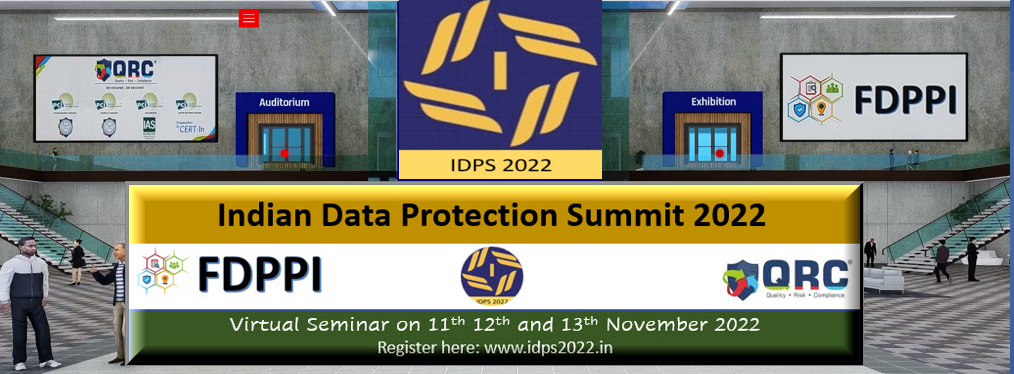
FDPPI invites you to the Biggest Data Protection Extravaganza in India
Unique Secure E Mail for FDPPI …MOU signed
LedgerFi is a UAE based company with a development center in Bangalore which has developed a unique blockchain based e-mail solution which does not use the insecure SMTP protocol.
The system provides end to end encryption with a PKI based digital signature system with the private key being in the control of the user.
The solution comes with two versions. In one version (B2C version) the e-mail server works on distributed systems which consists of a public blockchain and public decentralised storage.
In the other version (B2B version) the server is maintained by the corporate entity (on premise or private cloud). The system comes with an admin level control for decryption in case of law enforcement requirements. Hence the solution meets the requirements of security envisaged under the Indian law enforcement requirements and the CERT In regulations.
The solution can be used by a company or a Government department for internal e-mails where the users are on-boarded to the system as members of a closed community.
In the event e-mails are to be sent and received to or from persons outside the closed system, an invitation to be onboarded can be sent and the outsider can be brought into the system.
The system can be configured to use the current e-mail ID of a user such as xyz@gmail.com and hence the user who is onboarded onto the system does not have to make any change of identity with his contacts. All the contacts who are in the LedgerMail system can use the ID xyz@gmail.com to send and receive the e-mails through the system from or to other persons within the system.
The system is likely to be a big boon to Banks to prevent phishing if they onboard all their customers as a part of their account opening process. Similarly the Government of India which has been trying to move people out of Gmail can also use this system with an inhouse server which is secure and free from SMTP protocol deficiencies.
FDPPI expects this system to catch on with Privacy Conscious but Cyber Law Compliant users. FDPPI is proud to be the first Indian Corporate to adopt the system.
Digital Society Day 2022 at FDPPI
FDPPI and Naavi.org successfully celebrated the virtual event to celebrate the Digital Society Day 2022, on October 17, 2022. A Brief report of the event is presented below.
The event started with a brief welcome from T C Manju, Consultant Operations, FDPPI. This was followed by Naavi introducing the importance of the day and also introducing the FDPPI and its activities briefly.
This was followed by a talk from Mr Rakesh Maheshwari, Senior Director, MeitY on his experiences regarding ITA 2000 particularly in the implementation of the Intermediary guidelines.
This was followed by Dr (Advocate) Pavan Duggal who shared his reminiscences on ITA 2000. Dr (Advocate) Prashant Mali followed with his views and suggestions on ITA 2000.
This was followed by a brief presentation by Naavi on the concept of Compliance Management Rating (CMR) for CERT-IN and ITA 2000 compliance.
There after a panel consisting of Commander Mukesh Saini, Dr A Nagarathana, Dr Mahendra Limaye and Advocate M G Kodandaram discussed the relevance of ITA 2000 in the current regulatory scenario.
In the valedictory session, Commander Rajeev Seoni, presented a summary and his views on the proceedings. A Lucky draw was held for the participants who attended the program and three persons were chosen by a spinning wheel draw and they will be sent FDPPI T-Shirts.
Vote of Thanks was provided by Ashok Kini, Co-Founder Klickstart.
A link to the recording is available here.
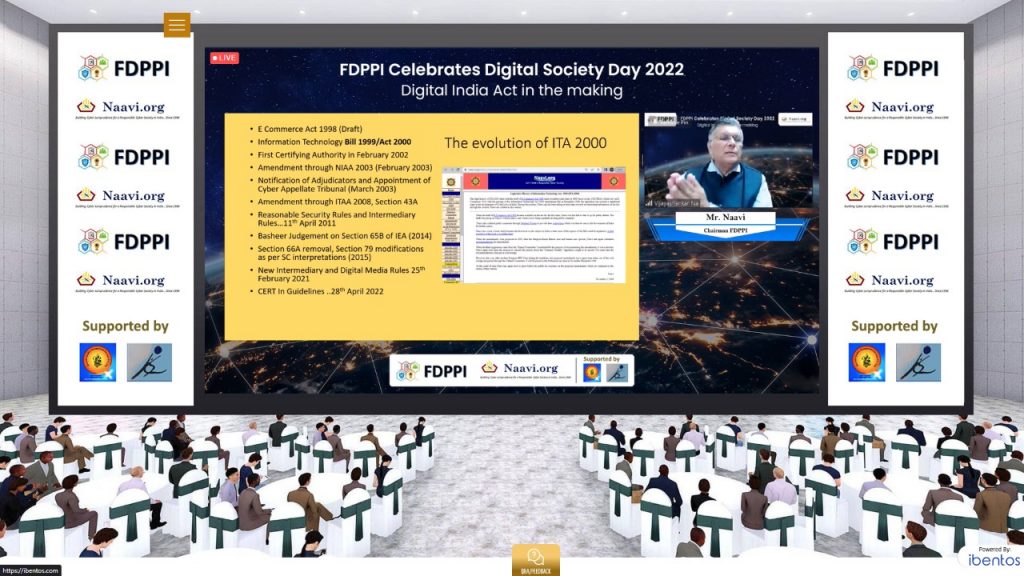 |
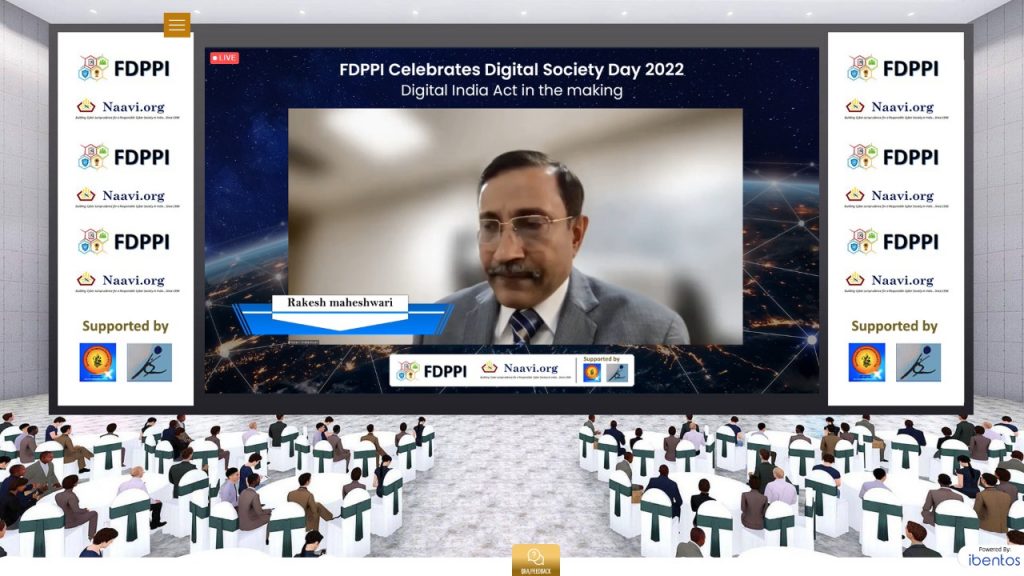 |
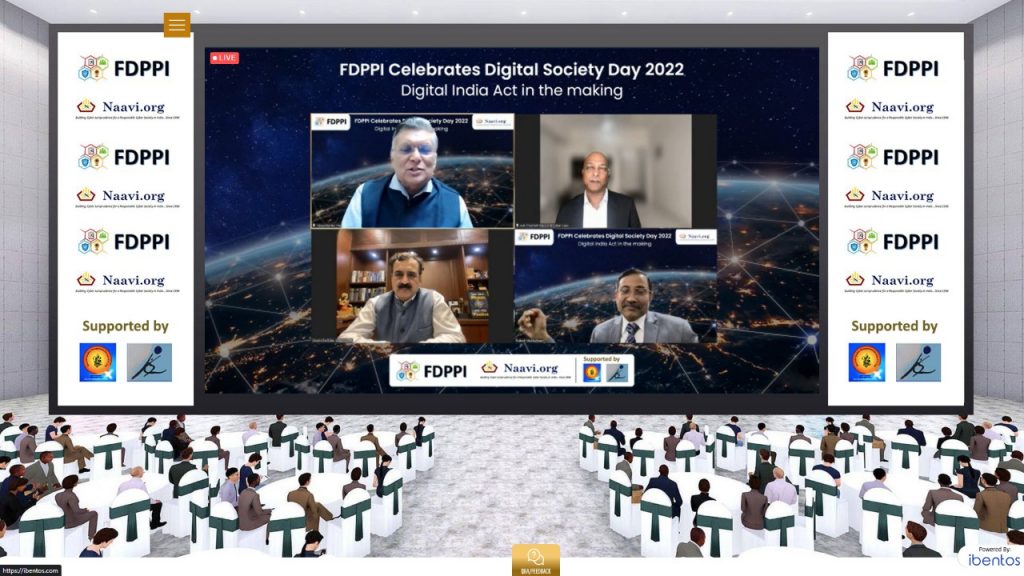 |
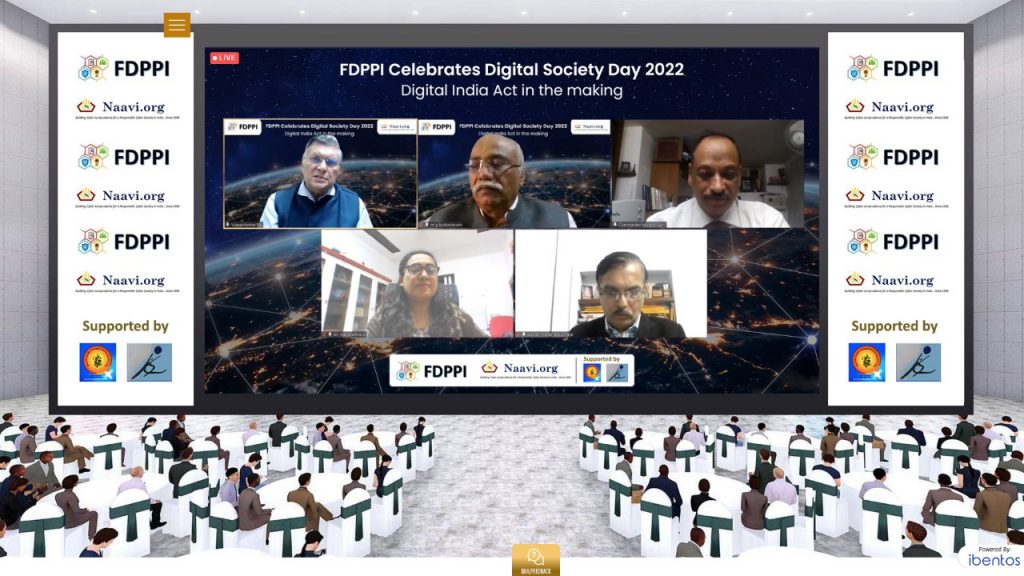 |
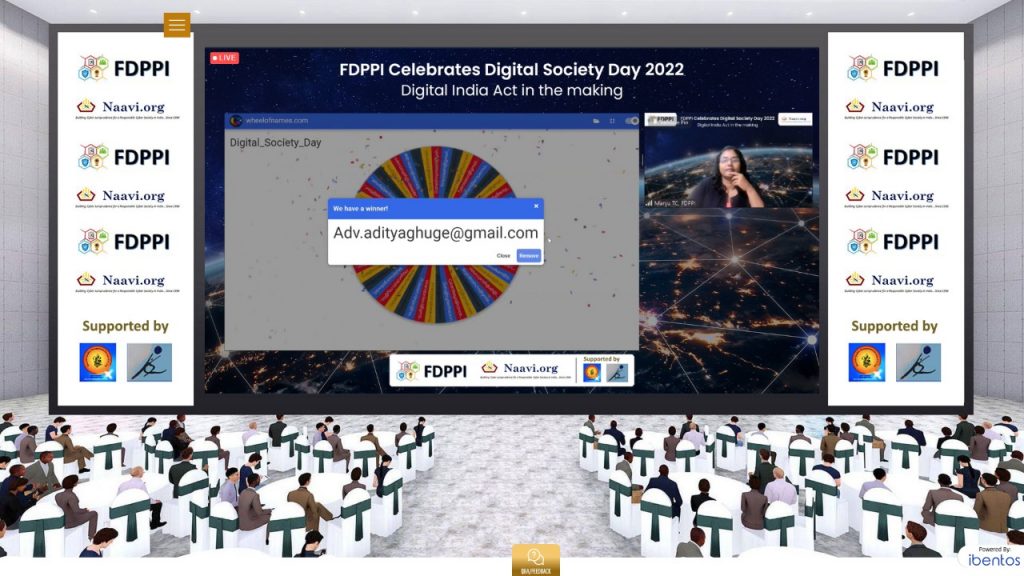 |
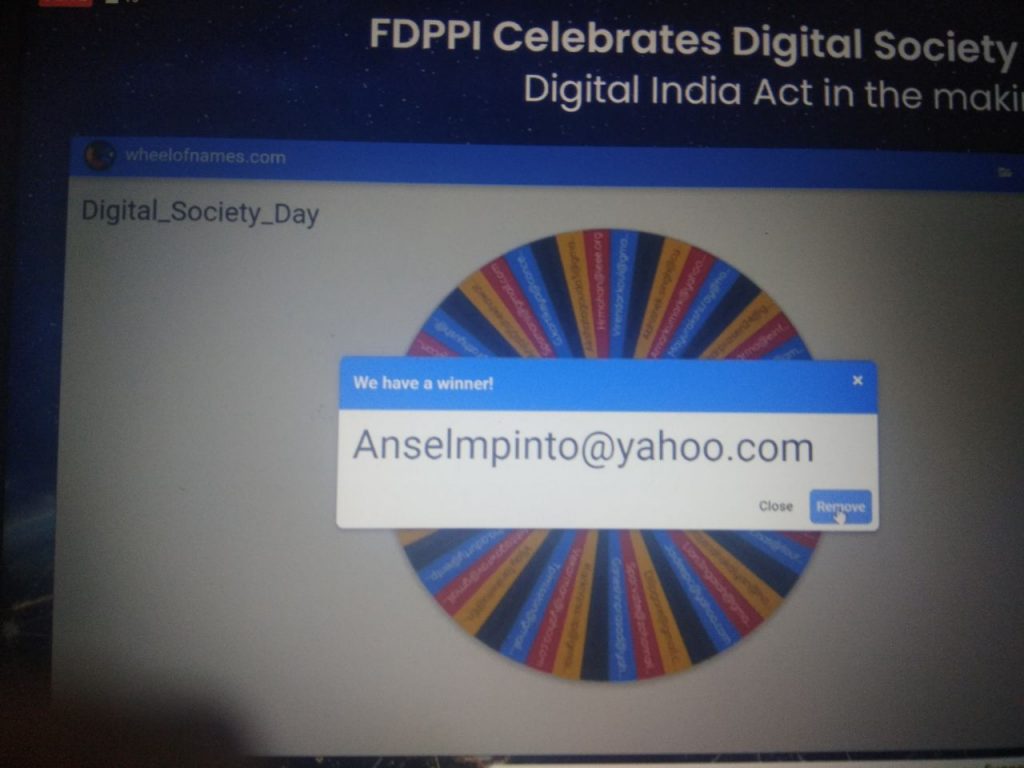 |
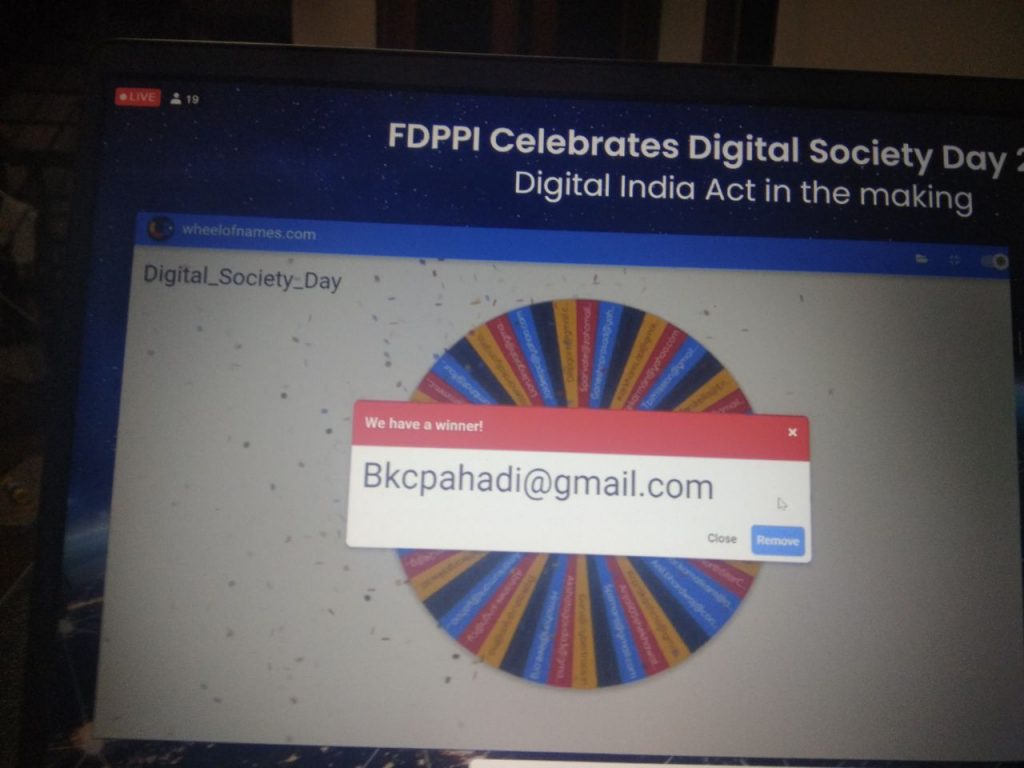 |
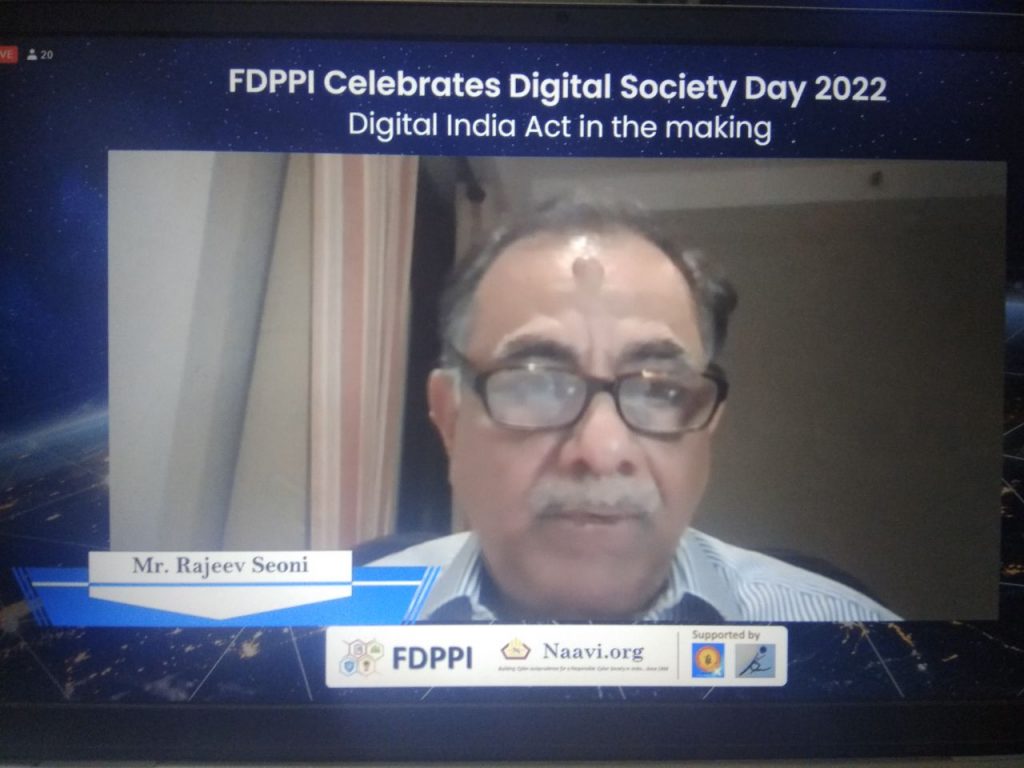 |
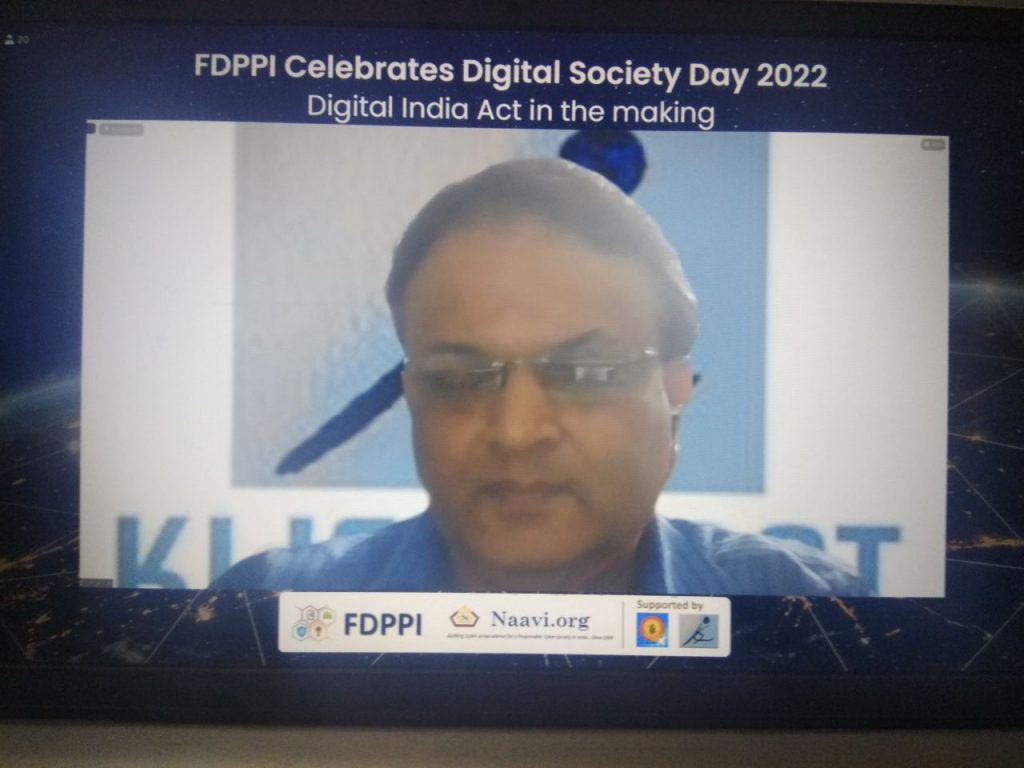 |
We thank all those who made the event a success.
A link to the recording will be provided as soon as it is made available from the platform service provider.
Naavi
FDPPI to Celebrate Digital Society Day 2022
October 17 each year is a day to remember in India. It is the day when India notified the Information Technology Act 2000 and consequently the Electronic Document and Digital Signature became legally recognized systems. It is therefore the birth day of the Digital Society in India.
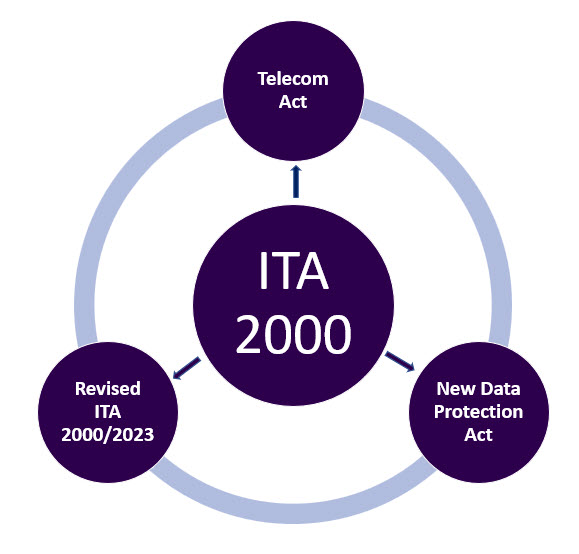
Today we are looking at the emerging Digital India and are working on several regulations such as the Telecom Act, New Personal Data Protection Act and a new Information Technology Act. However, ITA 2000 remains the mother of all Cyber Laws in India and October 17 remains the day India entered the digital world.
To commemorate the day, FDPPI is organizing a webinar on 17th October 2022 with the following agenda.
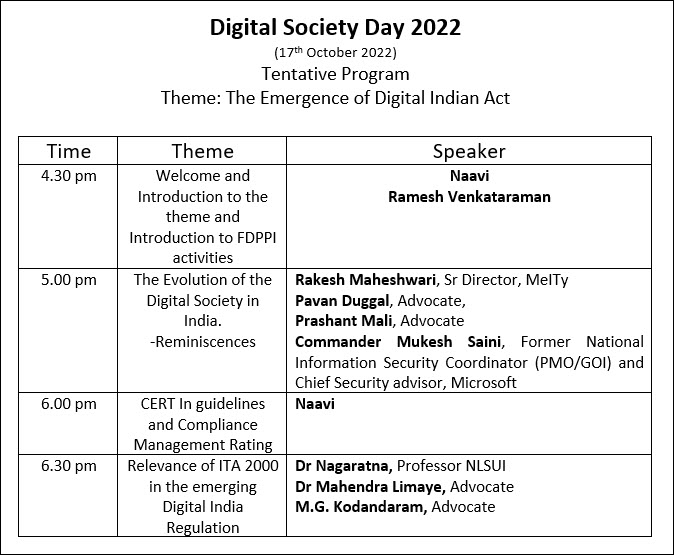
The program will be held on a virtual conference platform (link to be provided soon) and several eminent veterans who have in depth knowledge of how the ITA 2000 came into existence and the digital society of India blossomed and what the future scenario looks like for ITA 2000 in the midst of the new laws.
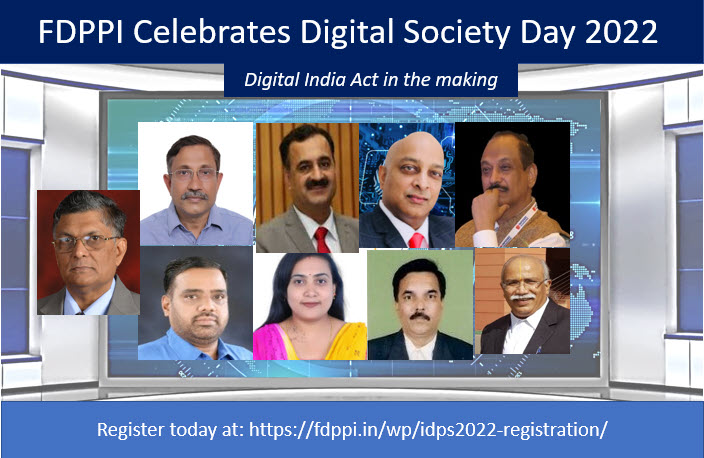
Participants may register for participation here
The take away from the program is summarized below.
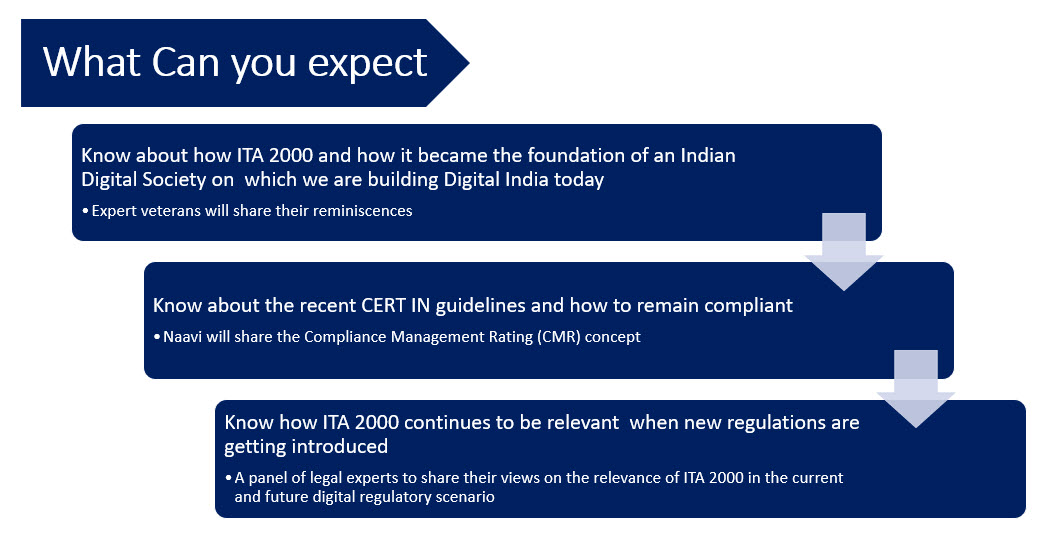
The program is sponsored by FDPPI and all participants are also provided with a free pass to the 3 day Virtual Conference, Indian Data Protection Summit 2022 (IDPS 2022) taking place on November 11, 12 and 13.
Naavi
AGM 2022
The Fourth Annual General Meeting of FDPPI was held on 24th September 2022 at The Chancery, 10/6, Lavelle Rod, Bangalore to approve the annual accounts and to discuss other issues.
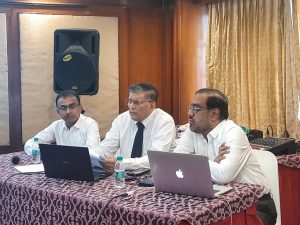
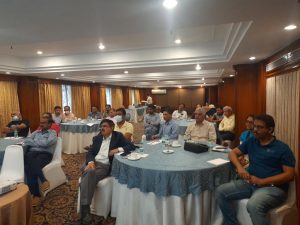
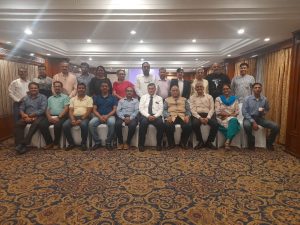
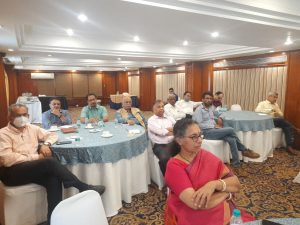
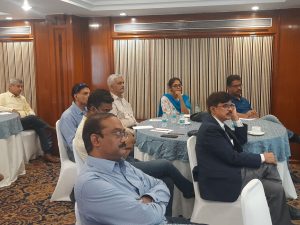
After welcome by Mr Nagendra Javagal, Naavi presented the accounts and Ramesh Venkataraman presented a review of the activities of the year 2021-22.
A discussion on the road ahead ensued and there were many suggestions that were discussed during the meeting on how FDPPI should proceed in the coming year.
We thank all the participants who attended on site and on the zoom.
Naavi
IDPS 2022 should be a community event
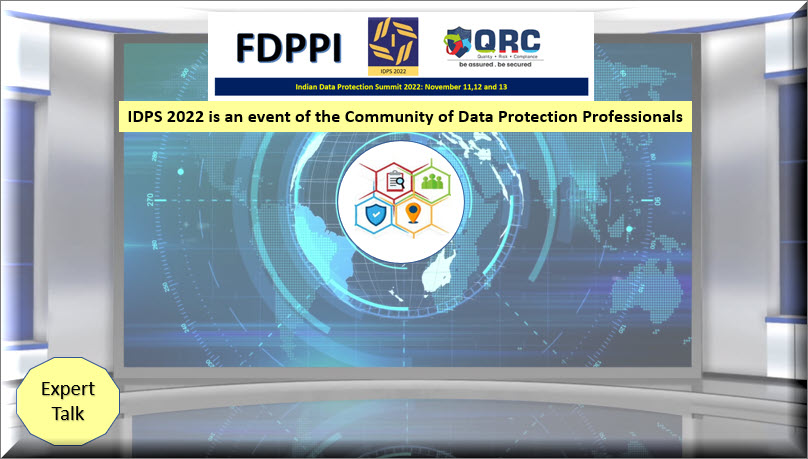
FDPPI is an organization of the data protection professionals and by the data protection professionals. The organization is supported by the aggregation of activities of its members. For practical reasons some members are designated as “Supporting Members” so that they act as divisions of FDPPI for generation of revenue through their activities. But all other members are like flesh and blood of the organization. If they are active, FDPPI is active.
This concept extends to the conduct of IDPS 2022 the flagship event of FDPPI. We would like to make this event the flagship event of the Data Protection Community in India of which FDPPI is a part.
The event is being conducted as a 3 day virtual event between 11th, 12th and 13th November 2022 between 2.00 pm and 8.00 pm (IST) or 8.30 am GMT to 2.30 pm GMT.
During this time and day, the event would be live. During these 18 hours we can accommodate perhaps 6-8 keynotes and another 6-8 panel discussions. This means that we can listen to around 30 -35 speakers and share their thoughts with the audience.
The canvas of discussion is “Privacy and Data Protection” and the theme is “Shape of Things to Come”. We therefore need to discuss the current laws in India and elsewhere, the technology of protecting Privacy and data, the Governance of Data for protection and monetization and many other related issues.
We are fully aware that the number of available speakers and the amount of knowledge they can contribute are much more than what we can present in 3 days. We cannot accommodate them all despite our best intentions.
We are also aware that this is a dilemma that is faced by every organizer of such programs world over. There are too many deserving speakers who ought to be heard. But either the organizers cannot reach out to them or the speakers are not available at the required time and place for the event. This often results in losing an opportunity to hear the experts and some times disappointing speakers who are eager to share their knowledge.
FDPPI therefore has opened it’s doors for speaking opportunities during the IDPS 2022 to the community so that IDPS 2022 is to be an event of the Data Protection Professionals by the data protection professionals and for the data protection professionals.
We therefore invite data protection professionals who would like to contribute their thoughts to the “Shape of things to come” in the domain of Privacy and Data Protection in the IDPS 2022 to send us recorded video clips preferably of less than 5 minutes. These recorded videos would be broadcast on the IDPS 2022 platform during the time 6.00 am (IST) to 12.00 noon (IST). This will ensure that the content would be available for the US-Australia time zone as an extension of the live sessions which are more suitable for the India-Gulf-EU time zones.
The video may be kindly recorded if possible with the background setting of the image provided above. Naavi would be available for checking the topic of discussion as well as for a participative recording of the views as a conversation if it is preferred.
The end objective of this exercise is to ensure that IDPS 2022 becomes an event of the community of data protection professionals.
We hope that we will also be able to show case the professionals who would otherwise miss participation in the event. For the upcoming speakers this is an opportunity to be present on this platform.
I request all professionals to make this concept a success.
Naavi
Expert’s Views
FDPPI is conducting IDPS 2022 which is a flagship event of FDPPI and an apex national event. During the three day virtual event that is taking place this year between November 11-13, about 30-40 speakers would be taking part.
We are aware that there are many more experts in the domain not all of whom can be identified by us and invited for the program. In fact FDPPI has over 200 members each of whom are decorated professionals and could contribute to the society with their knowledge. But we cannot accommodate all of them as speakers in this prestigious event.
However, we now have an alternative. We would like to collect both text and video messages from experts around the world and publish it as pre-recorded videos or messages during the IDPS 2022.
We therefore invite experts to contribute text or video messages by email if they have a view on Privacy and Data Protection or related areas.
Such views can be on IDPS 2022, FDPPI, some issue on Privacy, any of the data protection laws such as GDPR, CCPA, ITA 2000 , PDPB 2019 or the proposed law or any other matter of relevance to the professionals working in the domain of Privacy and Data Protection.
In case the views are not to be published and are meant only for FDPPI as a confidential view point, we would respect such request and not publish them.
In case you are sending any videos, kindly make it short and not exceeding 5 minutes. If you want to contribute pre-recorded content as a “Speaker” in the IDPS 2022, you can send a request and contribute videos of longer duration not exceeding 20 minutes.
Naavi
IDPS 2022 to provide Awards during the conference

One of the features of this year’s IDPS would be the awards to be provided to different category of persons recognizing their contribution to the Privacy and Data Protection eco system in India.
(Download the flyer with all information on the awards)
Naavi

